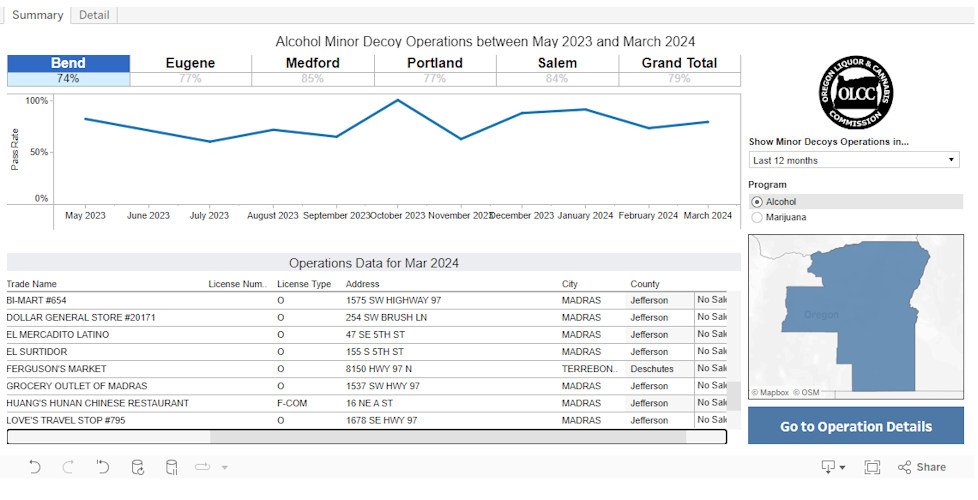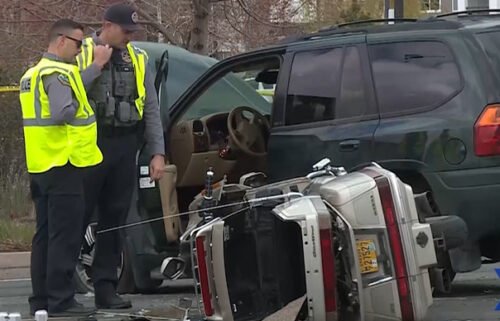OLCC expands alcohol, cannabis minor decoy operations to monitor licensee compliance, adds alcohol home delivery

Agency's interactive graphic of 'sting' results below
PORTLAND, Ore. (KTVZ) – As warmer weather arrives, the Oregon Liquor and Cannabis Commission said Friday it will expand its Minor Decoy Operations, to ensure that OLCC licensees are not selling alcohol and cannabis products to individuals under the age of 21. The stepped-up effort will also include MDO activity for alcohol home delivery.
After significant declines in licensee compliance during the period emerging from the pandemic, cannabis licensees have steadily improved in their compliance efforts. Alcohol sellers have also made progress with their compliance but have remained inconsistent, OLCC said.
“Our licensees need to comply with the laws and rules pertaining to mixing, serving, selling and delivery of alcohol, and MDO activity is a reminder of that obligation” said Andy Jurik, OLCC Director of Alcohol Compliance.
OLCC temporarily halted MDO inspections of licensed businesses (link to results by region) that sell or serve alcohol and businesses that sell cannabis for more than two years during the pandemic. MDO activity restarted in earnest in September 2022 after a few random checks resulted in abysmal results.
Compliance (on MDO’s) by alcohol licensees has improved from 71% in 2022 to 78% in 2023, to 80% so far in 2024. But it is still 10% below the 90% objective set by OLCC.
By comparison cannabis retailers have improved their compliance activity to get above the 90% threshold. From 80% compliance in 2022, to 87% in 2023, to 92% so far in 2024.
“It’s important for our licensees to make sure that they and their employees have good protocols in place for checking IDs to prevent minors from buying,” said Jurik. “There’s also age verification equipment (AVE) they can install that will cost less than a fine or license suspension.”
Adding MDO activity to alcohol home delivery is the result of passage of House Bill 3308 during the 2023 Oregon legislative session. That legislation directs the OLCC to oversee third-party delivery companies that deliver alcoholic beverages to consumers.
Drivers for these delivery companies are required to check the identification of the person receiving the order when it contains alcoholic beverages to make sure that person is not a minor. The MDO monitoring of alcohol home delivery is designed to prevent “drop and dash” activity, where a delivery driver leaves alcoholic beverages without checking for an identification.
A 2022 study conducted for the OLCC found more than 35% of alcoholic beverage deliveries were not done in a compliant manner. According to The Eyes on Oregon study non-compliant delivery included: no contact deliveries (drop and dash), no ID checking, and insufficient ID checking.
The OLCC offers ID checking classes at the agency’s regional offices, as well as at licensees’ businesses. Licensees can schedule a class for their business by contacting their local OLCC office.



